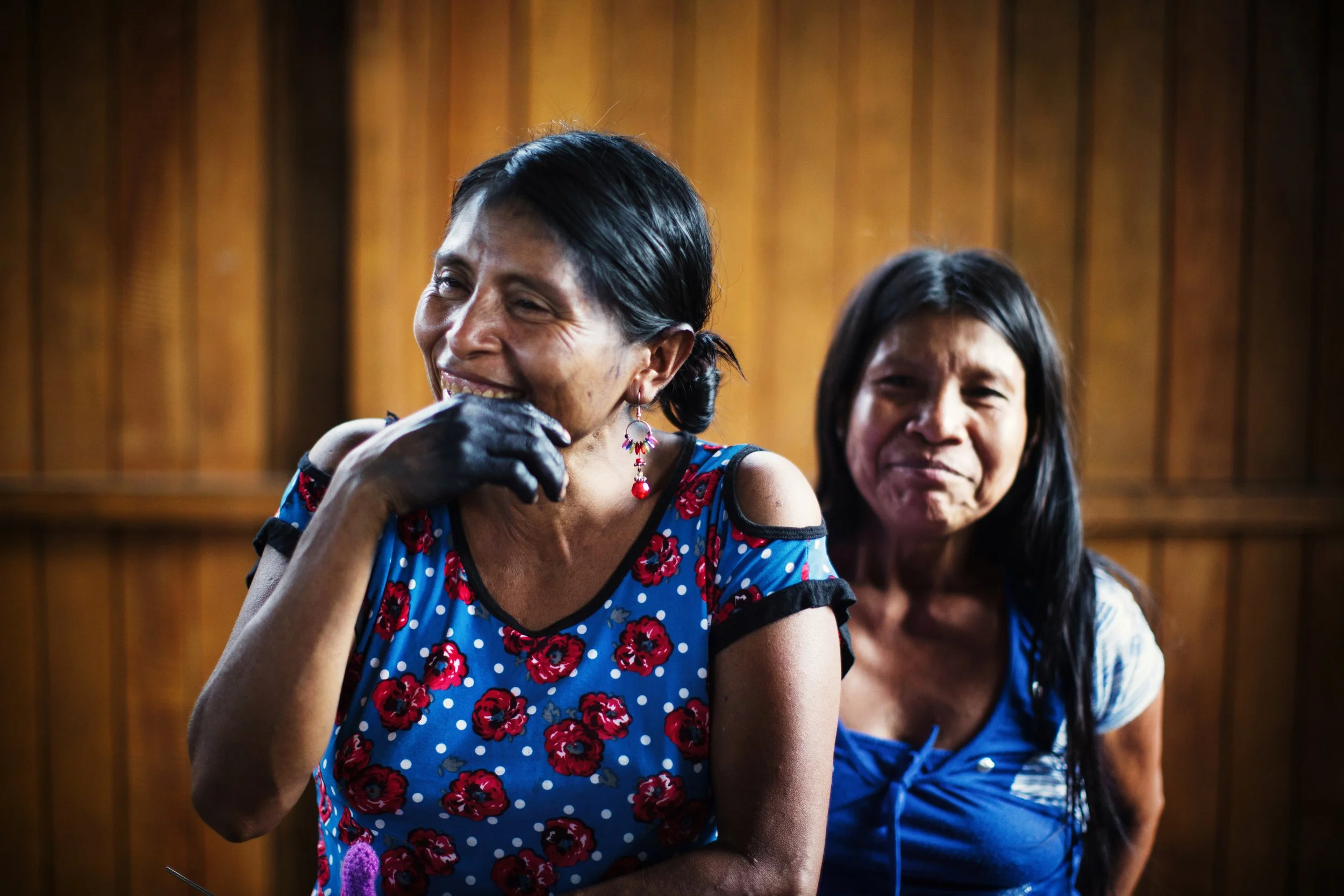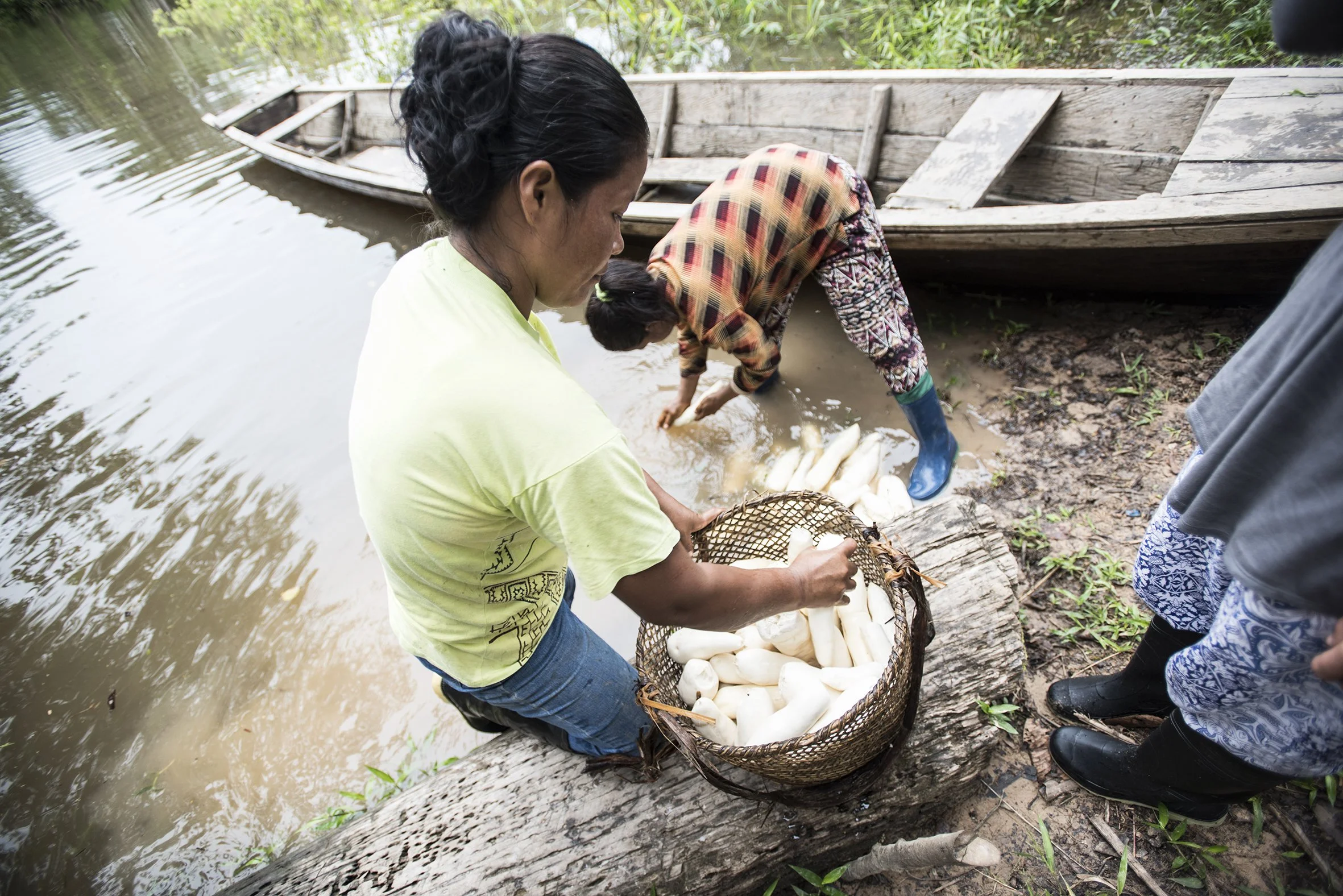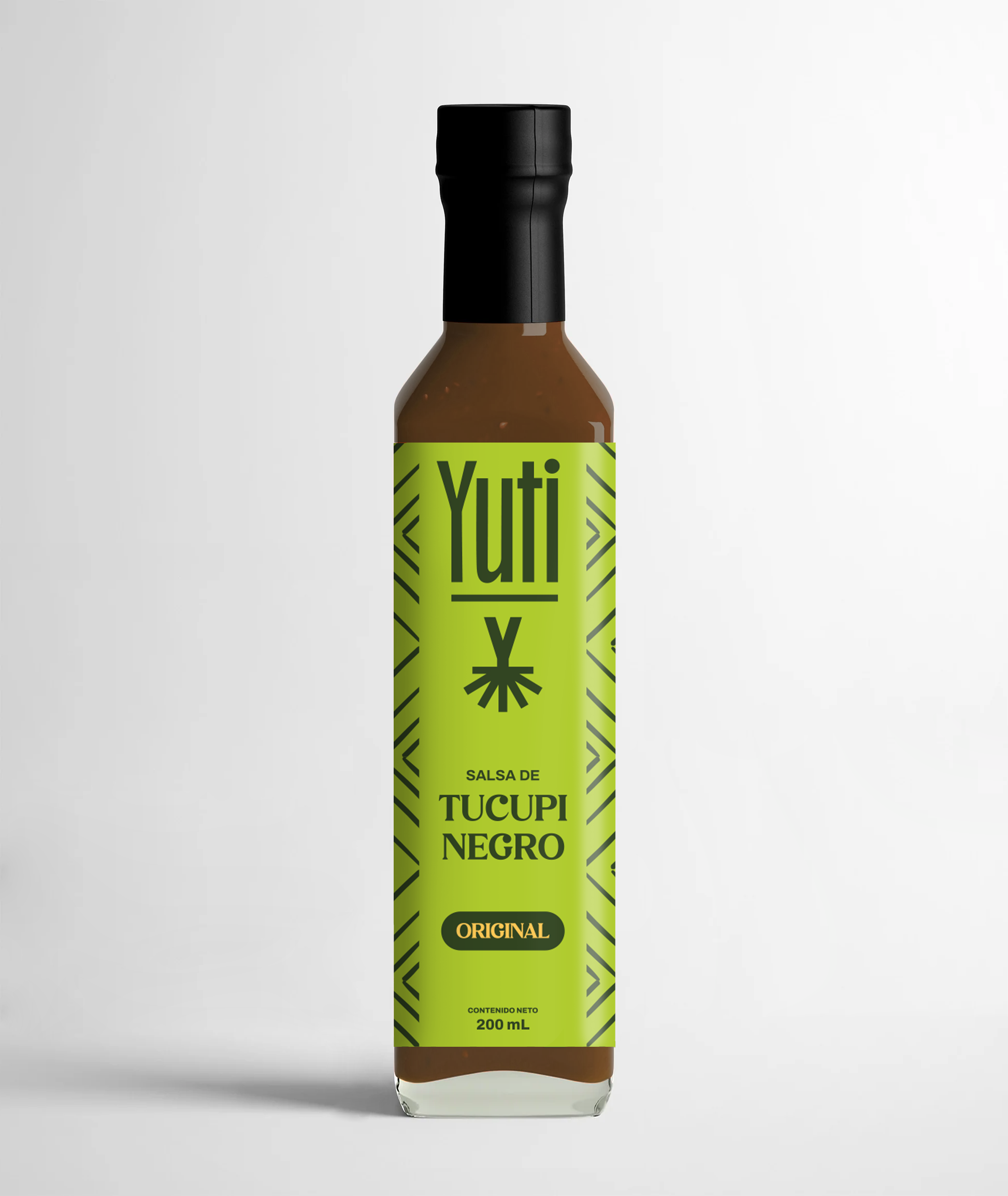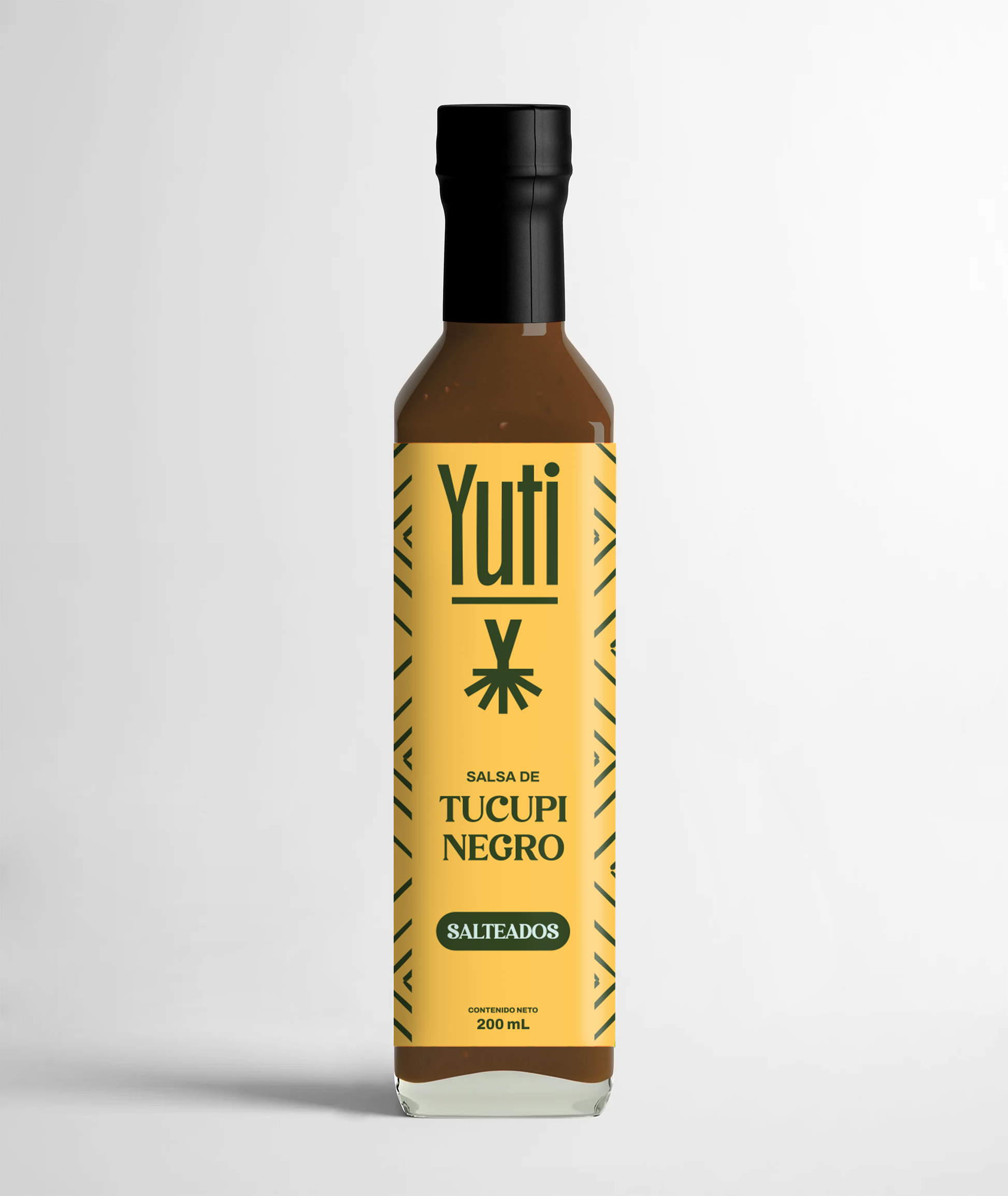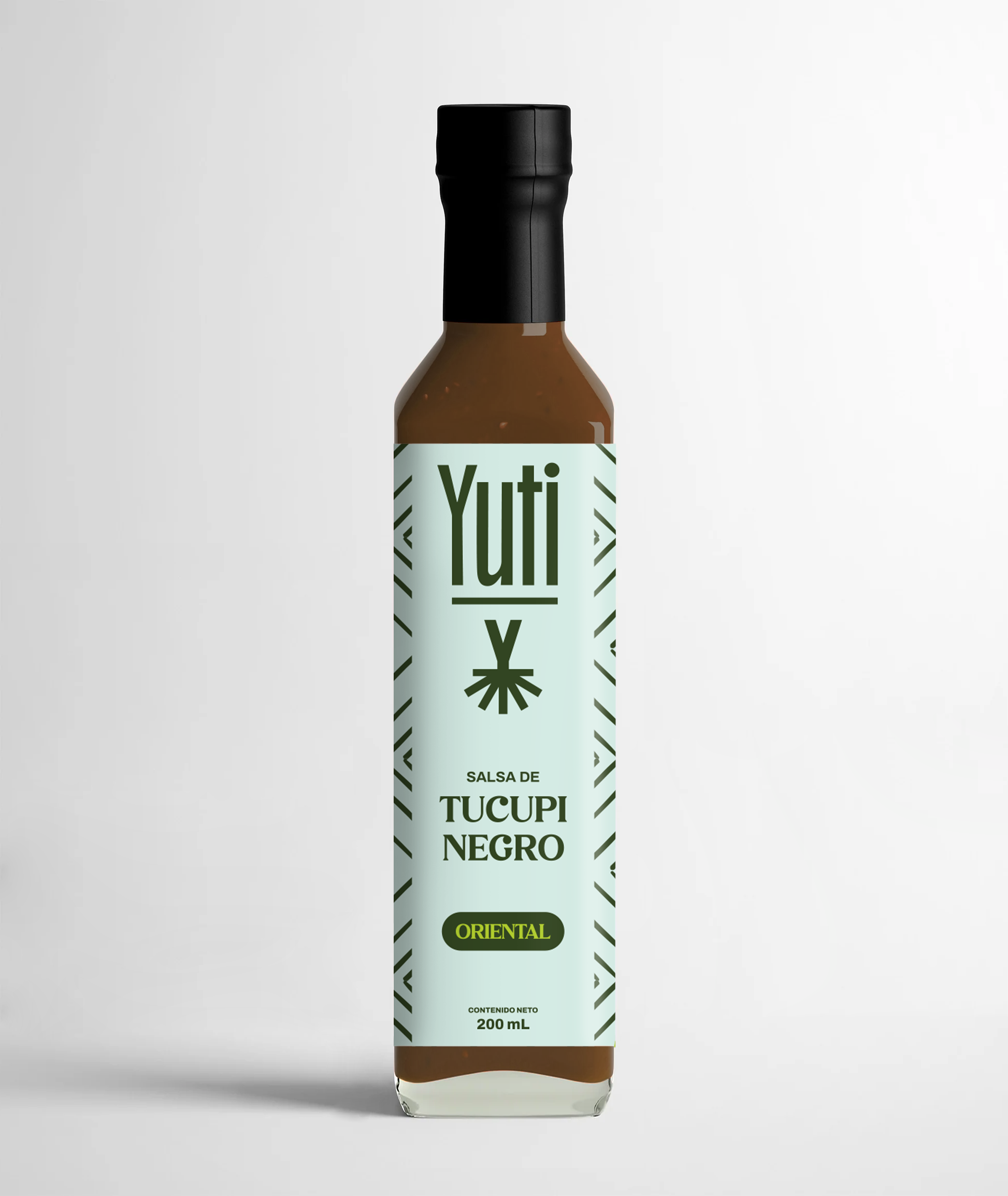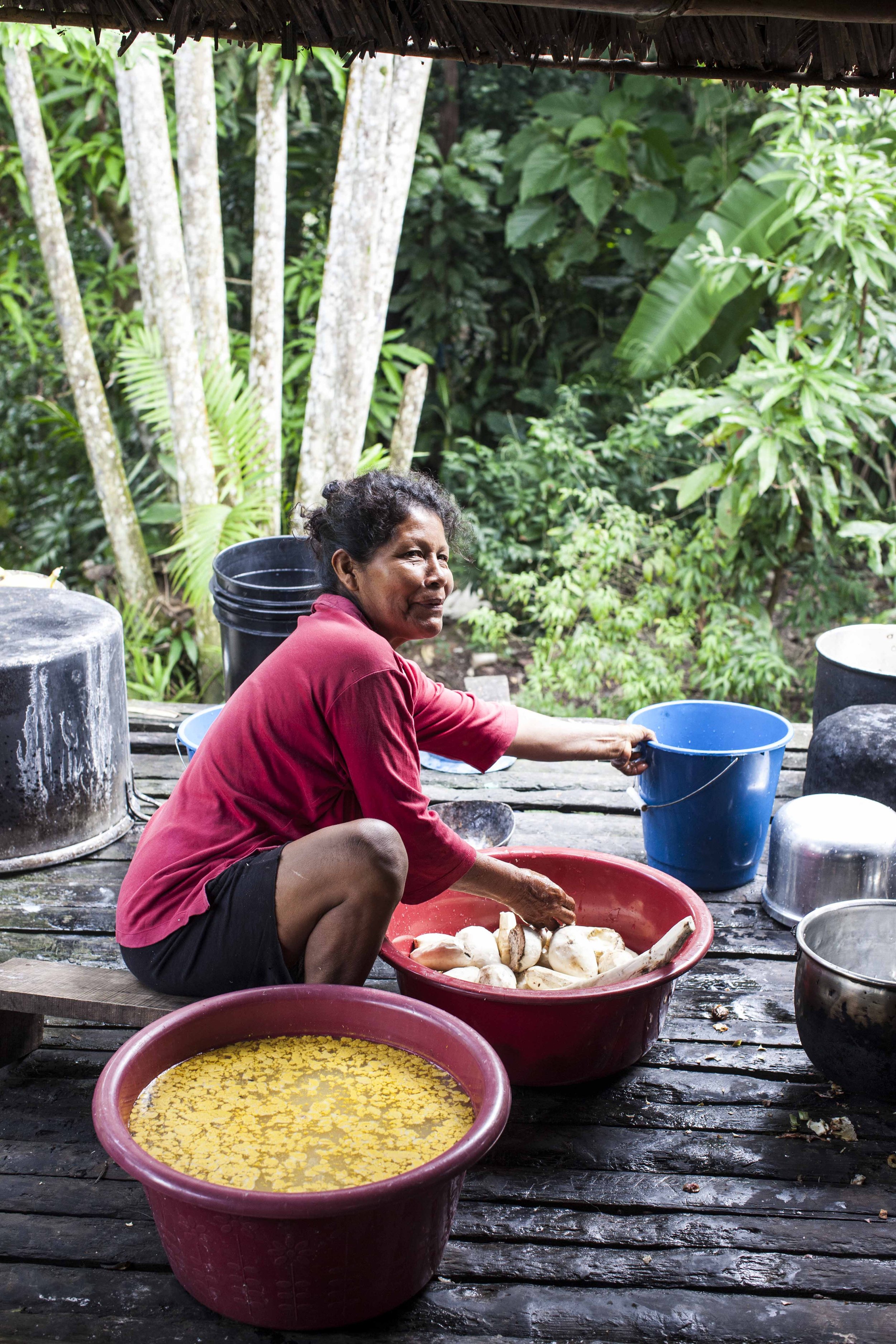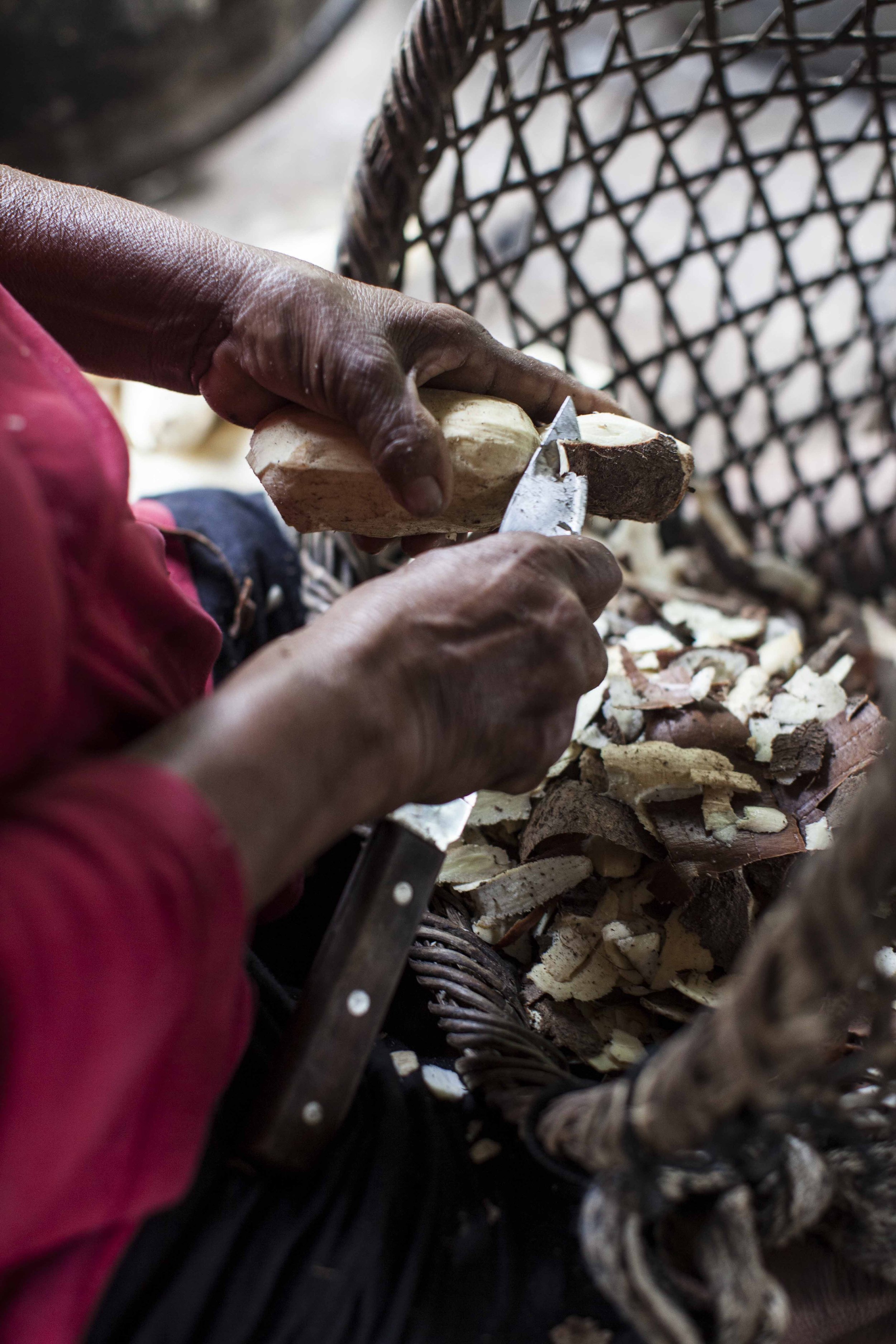tucupi negro
is a sauce made from yuca brava, a type of cassava, and has historically been produced by indigenous populations of the Amazon through a process of fermentation and stewing. The women which produce it, pass down their knowledge from generation to generation.
About YUTI
Yuti is made from tucupi negro by women from the Bora, Ociana and Huitoto peoples of the Peruvian Amazon.
Its umami-like flavor makes it an excellent ingredient for both at-home-cooking, and professional gastronomy. It can be used to season meats and fish, as well as a great ingredient for the preparation of desserts and cocktails.
In addition to its richness in tradition, tucupi is an excellent ferment and has beneficial properties for our health.
Cultural Relevance
The process of production of the tucupi negro sauce is one of the ways in which indigenous populations of the Amazon, such as the Boras, Huittotos, Secoyas and Ocainas of the Ampiyacu, honor theor origins and preserve their traditions.
Yuca Brava/Bitter Cassava:
Bitter Cassava or Yuca Brava also belongs to the Euphorbiaceae family.
Like all varieties of cassava, bitter cassava contains cyanide, but in higher concentration, which is extracted during the fermentation and cooking process to prepare tucupi.
Tucupi negro is produced from bitter cassava, which is grated, squeezed, fermented, and cooked to create this rich sauce.
"The conversion of a poisonous product into food. Although it is well known that it is a physical and chemical process of treating cassava to make it edible, the scientific explanation does not exhaust the wonderful act of turning a harmful fruit into a beneficial cultural product. The elimination of poison is a simple process in its application" (Chirif, 2014:14) *Translated Text*
Yuca / Cassava (Manihot esculenta Crantz):
Is a plant native to South America, belonging to the Euphorbiaceae family.
It's one of the most widespread crops and is the main source of carbohydrates for many peoples worldwide.
Yuca/Cassava is considered to be a “solidarity crop” because it has the advantage of staying underground and continuing to grow even when already ripe. This saved travelers from hunger, as they were able to extract the root from fields left fallow, even after years of being planted
About us
Yuti was born from an initiative developed by the women of the Bora, Huitoto and Ocaina communities of the Ampiyacu.
Yuti Looks to:
Promote the social and economic independence of the women in the Ampiyacu Conservation Area, an area which is highly dependent on male economy.
Promote a business that contributes to a sustainable economy through the selling of culturally rich and gastronomically valuable resources.
Support the spread of knowledge and information about amazonian products with great gastronomic potential and their possible everyday use in the kitchen.
Contribute to the revaluation of amazonian ingredients.
Tucupi is a sauce made through a process of fermentation and cooking of bitter cassava (yuca brava). Yuti is made by women from the Bora, Oceana and Huitoto communities of the Peruvian Amazon. It's umami-like flavor can be used to go with meats, fish, vegetables and more!
Products
Value
Value
The everyday use of tucupi negro in contemporary cuisine seeks to preserve its value and spread the traditions from which it originates.
What People are Saying
The various names of tucupi:
Ají Negro
Omai
Domeba
Casarama
Tucupi Preto
Catara /Katara
Kumaji
Cassareep— Quote Source
"Yuca used to hang from a plant": This story explains why cassava grows underground and not hanging from a plant - Extract from Pueblos de la Yuca Brava (Chirif, 2014:144)
In ancient times, the fruit of the cassava was high above, hanging from the plant, and from it was from there that one harvested it. The creator of all foods Meóóvite niimuhe had two daughters and two sons. The daughters, named Mehteballe and Maninile, did nothing, they didn't want to do anything, they just laughed. One day their father, the creator, said to them, 'it's late, go to the farm to get cassava so your brothers can eat their casabe, so they can eat their cassava.' 'Why bother,' the daughters replied, 'it's easy to get cassava, it's clean, there are no weeds, there's nothing but simply taking them.'
The father got angry. 'Now I'm going to make it very difficult for you to get cassava, so you suffer,' he said. so the cassava fell to the ground, below the ground it fell. 'From today,' said the father, 'there will be weeds, all kinds of weeds will come up in the place of the plant and the cassava will have to be taken out of the ground.' When the daughters happily went to get cassava, they found everything covered in weeds and the cassava beneath, buried in the ground. And since then they have had to suffer to harvest it.
Historical myths about cassava:
texts have been translated*
"Legend of an indigenous people of the Venezuelan Orinoco": It is a story about the transformation of poisonous cassava into food: Extract from Pueblos de la Yuca Brava (Chirirf, 2014:14)
The story tells of the death of a young man named Manioc, son of an important chief. Time after his death, when they went to unearth his remains to proceed with the traditional custom and final burial, they found no traces of the corpse. Instead, in its place, they found a large root, the cassava or mandioca that became the main food of the indigenous people of the region. The death-life association to which I have just referred to, in this case represented by the conversion of the corpse of a boy into the main food of a society, is also something that admires this indigenous people.


